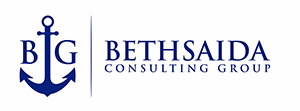By: Jason Green, CPA

For non-profit organizations, the accuracy and transparency of financial statements are crucial for maintaining trust with donors, grantors, and other stakeholders. Fair value estimates, which assess the worth of assets and liabilities, are a key component of these statements. Understanding how auditors audit these estimates can significantly impact a non-profit’s financial health and reputation.
Ensuring Financial Accuracy and Transparency
Fair value estimates often involve complex calculations and significant judgment. For non-profits, assets like investments, endowments, and donated goods must be accurately valued to reflect their true worth. Auditors, guided by Statement on Auditing Standards (SAS) 143, perform rigorous procedures to ensure these estimates are accurate. This includes assessing the methods, assumptions, and data used by management. By ensuring these estimates are precise, auditors help non-profits present a true and fair view of their financial position, fostering trust among stakeholders.
Mitigating Risks and Enhancing Governance
Fair value estimates are susceptible to errors and biases. Auditors identify and assess risks of material misstatement due to estimation uncertainty, complexity, and management bias. For non-profits, misstatements can lead to inaccurate financial reporting, potentially jeopardizing funding and grants. By understanding the auditor’s role in scrutinizing these estimates, non-profits can strengthen their internal controls and governance practices, ensuring that their financial statements are reliable and free from significant errors.
Compliance with Accounting Standards
Non-profits must adhere to accounting standards and regulatory requirements. SAS 143 requires auditors to evaluate whether fair value estimates comply with the applicable financial reporting framework. This includes verifying that the estimates are reasonable and appropriately disclosed. Compliance not only safeguards the non-profit’s legal standing but also enhances its credibility with donors and regulatory bodies.
Improving Financial Decision-Making
Accurate fair value estimates provide essential information for strategic planning and decision-making. Non-profits rely on these estimates to make informed decisions about resource allocation, investment strategies, and long-term planning. Auditors’ thorough examination of these estimates ensures that non-profits base their decisions on sound financial data.
Non-profit organizations should care about how auditors audit fair value estimates because it ensures financial accuracy, enhances governance, ensures compliance, and improves decision-making. By understanding the importance of these audits, non-profits can better manage their financial health and uphold the trust of their stakeholders.
For more detailed guidance, refer to SAS 143, particularly Paragraphs 12-14 and A8-A9. SAS 143 becomes effective for audits of financial statements for periods ending on or after December 15, 2023.

